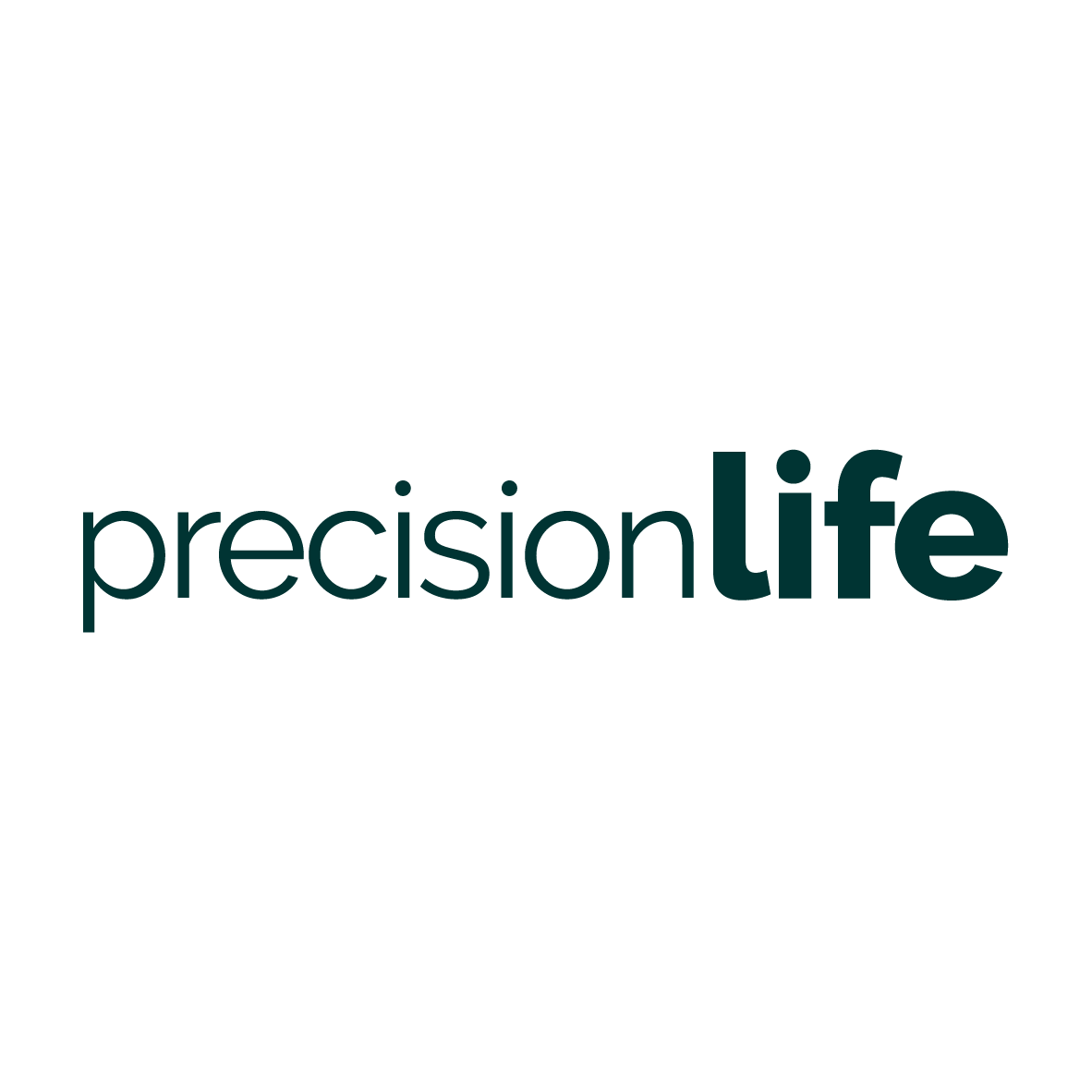Mechanostics®
Mechanism-based precision medicine tests for chronic diseases
First-in-class genotypic tests to accurately determine disease risk, mechanistic causes, and most effective treatments for patients
For research use only. Not for use in diagnostic procedures.

The most accurate disease risk prediction
The complex biology underpinning chronic diseases has made them difficult to diagnose and treat effectively, leaving millions of patients with unmet needs and making healthcare unaffordable.
Mechanostics are biomarker-driven precision medicine tests for chronic diseases that accurately identify disease risk, underlying causes, and the most effective treatments for individual patients. All consistent with a patient’s specific risk factors and mechanisms.
Mechanostics enable:
Earlier prediction and detection of disease
Rapid & accurate differential triage
Personalized & timely treatment strategies

Treat & prevent chronic diseases that account for over 80% of all healthcare costs
Mechanostic tests have the potential to transform detection and treatment of complex diseases that affect over 5 billion lives.
Identifying a patient’s specific risk factors and disease mechanisms guides the development of personalized care pathways. These can include tailored monitoring, lifestyle changes and protective prophylactic therapies that can delay onset and prevent progression of major chronic diseases.
This is precision medicine, for everyone.
Rapid, low-cost & non-invasive
Our mechanostic tests outperform polygenic and metabolomic diagnostics in complex conditions, are rapid, non-invasive and cost-effective.
The genotypic tests are compatible with widely available genotyping platforms used in CLIA/CAP labs around the world, accelerating their adoption and reducing the need for regulatory approval in global markets.

Mechanism-Based Precision Medicine
Mechanostics enable accurate risk scoring, differential triage, companion diagnostics & more
Disease Risk Scoring
Identifying at-risk patients before symptoms emerge
Mechanostics enable proactive healthcare by detecting subtle, highly predictive genotypic signatures long before clinical symptoms arise. Using combinatorial analytics, our tests identify individuals at elevated risk based on the specific biological mechanisms that drive disease.
These non-invasive, low-cost tests use saliva or buccal swabs and are compatible with widely available genotyping arrays - making large-scale population screening practical and cost-effective.
Use in diagnostics & healthcare
Diagnostics providers can offer next-generation risk prediction tools that add clinical value and create new revenue streams through longitudinal patient engagement.
Healthcare systems benefit from earlier interventions, reduced late-stage diagnoses, and the ability to shift from reactive treatment to preventative care - improving outcomes while lowering long-term costs.
Differential Triage & Precise Diagnosis
Pinpointing disease mechanisms for faster, more accurate referrals
Mechanostics identify the underlying biological drivers of disease in each patient, distinguishing between conditions with overlapping symptoms that often lead to delayed or incorrect diagnoses.
By decoding genotypic signatures linked to specific mechanisms, our tests provide clear, actionable insights that support earlier and more accurate diagnosis, reduce the need for specialist referrals and expensive confirmatory testing, and avoid ineffective treatments.
Use in diagnostics & healthcare
Diagnostics providers gain high-value tools that enhance clinical accuracy, integrate seamlessly with existing genotyping platforms, and improve operational efficiency.
Healthcare systems benefit from reduced diagnostic delays, fewer unnecessary investigations, and faster triage to the right care pathways - relieving pressure on specialist services and improving patient outcomes.
Companion Diagnostics
Targeting treatments to the biology that matters
Mechanostics enable targeted therapeutic decision-making by identifying the specific disease mechanisms active in each patient. This insight can be used to determine which patients are most likely to benefit from a given treatment - or avoid adverse reactions - based on their individual biology.
This approach enables clinicians to prioritize treatments that align with the patient’s underlying disease biology. For example, our tests can identify patients most likely to benefit from Kerendia in chronic kidney disease, or predict complications in type-II diabetes to inform early therapeutic intervention.
Use in diagnostics & healthcare
Diagnostics and pharmaceutical companies can develop and deploy high-value companion tests that support personalized treatment strategies and improve therapy ROI.
Healthcare providers benefit from reduced trial-and-error prescribing, lower drug costs, and better therapeutic outcomes.
Clinical Trial Recruitment
Smarter recruitment for faster, more effective trials
Mechanostics transform trial recruitment by identifying patients with the specific genotypic and mechanistic profiles targeted by investigational therapies - improving signal detection and trial efficiency from the outset.
Our low-cost, non-invasive tests use saliva or buccal swabs and run on standard genotyping arrays compatible with CLIA/CAP-accredited labs worldwide. This makes mechanostic screening highly scalable, enabling rapid pre-screening of large patient populations across diverse sites and geographies.
Use in trial design & execution
Biotech and pharma partners can run smaller, faster, and more successful trials by enrolling patients most likely to respond. Mechanistics reduce heterogeneity, improve inclusion criteria, and support enriched trial design strategies.
By combining precision recruitment with global scalability, mechanostics lower development risk, accelerate timelines, and increase the probability of success - bringing precision therapies to market faster.
Early Intervention & Prevention
Delaying and preventing disease with clinically actionable insights
Mechanostics detect an individual's risk of developing chronic diseases years before symptoms appear by identifying the genotypic signatures and biological mechanisms that drive disease onset.
This empowers clinicians to implement tailored early interventions - from lifestyle modifications and active monitoring to prophylactic therapies - to delay or even prevent disease progression.
PrecisionLife is uniquely positioned to go further, identifying actively protective biology that informs the development of next-generation prophylactic drugs and mRNA vaccines targeting major chronic conditions.
Use in diagnostics & healthcare
Diagnostics providers can expand the value of routine testing by offering predictive tools that support prevention-focused care models and public health strategies.
Healthcare systems benefit from a measurable reduction in future disease burden, enabling more sustainable care delivery and longer, healthier lives for patients.
Major benefits for patients, payors & providers
Mechanostics benefits for providers:
1. Personalized Treatment Guidance
Mechanostics identify disease mechanisms, helping tailor interventions to individual patient needs.
2. Clearer Clinical Decision-Making
Simplifies diagnosis and accelerates triage of overlapping symptom conditions, reducing time to treatment.
3. Practical in Routine Care
Delivered via non-invasive samples, usable in primary care or at home without specialist infrastructure.
4. Earlier, Better Outcomes
Enables proactive care by identifying risks before severe symptoms develop - saving clinician time and improving patient quality of life.

Mechanostics allow payors to:
1. Reduce Costs of Care
Early risk prediction and stratification lowers unnecessary treatments and hospitalizations, reducing spend.
2. Promote Health Equity
Common variant combinations improve predictive accuracy across diverse ancestries and populations.
3. Streamline Diagnosis
Low-cost, non-invasive testing supports efficient triage and reduces burden on healthcare systems.
4. Enable Reimbursement
Demonstrated precision in stratification supports long-term cost savings and payer adoption.

Mechanostics offer diagnostics providers:
1. Access to Major Unaddressed Markets
Mechanostics target underserved chronic conditions responsible for over 80% of healthcare costs - unlocking large new diagnostic markets.
2. Scalable Revenue Growth
High-prevalence conditions support recurring revenues via self-pay and licensing models across a global patient base.
3. Easy Lab Deployment
Tests use standard genotyping platforms already in CLIA labs worldwide - enabling rapid, low-cost global rollout.
4. Competitive Differentiation
Outperform polygenic/metabolomic tests with disease-specific triage and mechanistic insight - creating real product advantage.

Mechanostics benefits for patients:
1. Faster, More Accurate Diagnosis
Mechanostics uncover the root cause of symptoms, reducing diagnostic delays and misdiagnoses in complex chronic conditions.
2. Personalized, Effective Treatments
By revealing each patient’s specific disease mechanisms, tests support therapies that are more likely to work and less likely to cause harm.
3. Convenient and Non-Invasive
Tests are simple, saliva-based, and can be taken at home or in a primary care setting – no hospital visits or invasive procedures required.
4. Empowered, Preventive Care
Mechanostics identify risk before disease develops, enabling patients to take proactive steps and work with their care teams to stay healthier, longer.

Tab heading
Mechanostics benefits for providers:
1. Personalized Treatment Guidance
Mechanostics identify disease mechanisms, helping tailor interventions to individual patient needs.
2. Clearer Clinical Decision-Making
Simplifies diagnosis and accelerates triage of overlapping symptom conditions, reducing time to treatment.
3. Practical in Routine Care
Delivered via non-invasive samples, usable in primary care or at home without specialist infrastructure.
4. Earlier, Better Outcomes
Enables proactive care by identifying risks before severe symptoms develop - saving clinician time and improving patient quality of life.

Mechanostics allow payors to:
1. Reduce Costs of Care
Early risk prediction and stratification lowers unnecessary treatments and hospitalizations, reducing spend.
2. Promote Health Equity
Common variant combinations improve predictive accuracy across diverse ancestries and populations.
3. Streamline Diagnosis
Low-cost, non-invasive testing supports efficient triage and reduces burden on healthcare systems.
4. Enable Reimbursement
Demonstrated precision in stratification supports long-term cost savings and payer adoption.

Mechanostics offer diagnostics providers:
1. Access to Major Unaddressed Markets
Mechanostics target underserved chronic conditions responsible for over 80% of healthcare costs - unlocking large new diagnostic markets.
2. Scalable Revenue Growth
High-prevalence conditions support recurring revenues via self-pay and licensing models across a global patient base.
3. Easy Lab Deployment
Tests use standard genotyping platforms already in CLIA labs worldwide - enabling rapid, low-cost global rollout.
4. Competitive Differentiation
Outperform polygenic/metabolomic tests with disease-specific triage and mechanistic insight - creating real product advantage.
A simple test
Non-invasive sample taken at home or in a primary care setting, tested against an Axiom genotyping array
Rapid results
Results delivered by our clinical decision support platform, translating disease mechanisms into actionable insights
Predicting risk
Pre-symptomatic risk detection allowing for proactive monitoring, lifestyle changes, or therapeutic interventions
Detecting cause
Identifying the underlying biology driving disease, enabling personalized care based on each patient’s specific mechanisms
"This unrivaled understanding of the mechanistic causes of disease enables us to better determine disease risk in our patients and specify which therapies are most likely to be effective in treating them."
Amy Rochlin
Chief Executive Officer
Complex Disorders Alliance
Let's talk
Patients are counting on us
We're always looking for new partners to achieve better health for patients, faster.
Contact us to request more information or discuss a collaboration.
